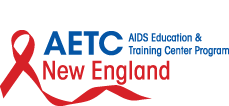Breaking the Chain of Infection: Series for Providers in Corrections All
Details

Description
Opening Session of the Provider Series and the Nurse Series
Hepatitis C Elimination – the Key Role of Jails and Prisons
Presented By: David de Gijsel, MD, Assistant Professor at the Geisel School of Medicine
Brief overview/description: The United States government has endorsed the World Health Organization’s goal of eliminating hepatitis C as a public health threat by 2030. Most new hepatitis C infections in the United States occur among people who use drugs. The criminalization of drug use has led to a large population of people infected with hepatitis C in prisons and jails throughout the United States. Successful and efficient elimination strategies focus on testing and treating of hepatitis C in people who are incarcerated.
Structural Inequity, Racial and Ethnic Disparities & Infectious Diseases
Presented By: Bisola Ojikutu, MD, MPH, Assistant Professor of Medicine and Global and Social Medicine, Harvard Medical School, Associate Physician, Division of Global Health Equity at Brigham and Women’s Hospital, Faculty Member, Infectious Disease Divisions, Brigham and Women’s Hospital and Massachusetts General Hospital.
Brief overview/description: This talk will focus on structural factors, such as structural racism, promoting risk for infectious diseases such as COVID-19 and HIV. Public health and clinical strategies to addressing these factors within underserved communities will be highlighted.
2nd Session of the Provider Series and the Nurse Series
Overview of current treatment Guidelines within NH DOC
Presented By: Thomas Groblewsi, DO & Ryan Landry RN-BC, MSN
Corrections to Community: The Importance of STI/HIV Testing, Prevention and Treatment
Presented By: Dr. John Winters
Brief overview/description: The focus of the presentation will be around the conversation of social and sexual health in the correctional setting. The session will address:
- The importance of testing a vulnerable population for both STIs and HIV.
- The benefits and challenges of increasing access to STI and HIV testing, prevention, and treatment for both the individual and the population.
- The challenges and difficulties as patients transition from the correctional setting to the community.
Prison Peer Education Project: NMPEP/INPEP
Presented by: Daniel Rowan, CPSW & Andrea Janota, MPH
Brief overview/description: Prison Peer education provides an effective method for disseminating vital health information to the general prison population while providing meaningful opportunities for incarcerated men and women to develop marketable skills and build self-efficacy. The ECHO Model as it relates to medical settings will also be discussed.
3rd Session of the Provider Series and the Nurse Series
Overview of current NH DOC treatment Guidelines for Hepatitis B and C
Presented By: Thomas Groblewski, DO
Treating hepatitis C in the NYC jail system
Presented By: Justin Chan, MD, MPH
Brief overview/description: People detained in correctional settings have a high prevalence of hepatitis C virus (HCV) infection and are underserved by medical clinics in the community. Jails and prisons are settings where large scale HCV screening can occur and highly effective direct-acting antiviral therapy can be delivered. This lecture will describe the HCV cascade of care in the NYC jail system and present outcomes of the HCV treatment program. It will review challenges that need to be addressed as these programs are scaled up.
Case Discussions
David de Gijsel, MD, MSC, MPH
Justin Chan, MD
Targeted Populations
A variety of the listed populations will be discussed at this event.
- American Indian or Alaska Native
- Asian
- Black or African American
- Hispanic or LatinX
- Native Hawaiian or Pacific Islander
- Gay, lesbian, bisexual
- People with Incarceration Experience
Topics
A variety of the listed topics will be discussed at this event.
- Treatment as Prevention (e.g., U=U)
- Antiretroviral treatment adherence, including viral load suppression
- HIV diagnosis (i.e. HIV testing)
- HIV Epidemiology
- HIV monitoring and lab tests (i.e. CD4 ad viral load)
- Linkage to Care
- Retention and/or re-engagement in care
- Social Determinents
- Hepatitis B
- Hepatitis C
- Sexually transmitted infections
- Substance use disorders
- Opioid use disorder
- Health literacy
- Stigma or discrimination
- Community linkages
- Funding or resource allocation
- Team-based care (i.e. interprofessional training)



